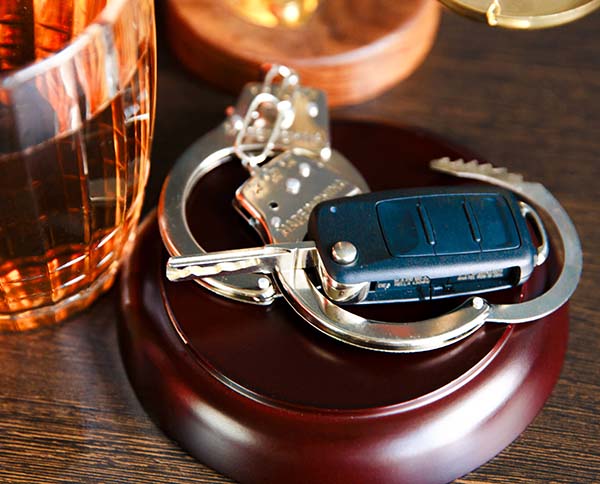Drivers across Florida should be aware of what happens at DUI roadblocks. If you get arrested for DUI, you should contact a criminal defense attorney right away. There are guidelines from the National Highway Traffic Safety Administration that must be followed by law enforcement, and your attorney may be able to file a motion to have your case dismissed.
What is a DUI Roadblock?
DUI roadblocks, also known as DUI checkpoints or sobriety checkpoints, are a law enforcement tactic utilized in Florida and across the country to identify impaired or drunk drivers.
Typically, DUI roadblocks are set up late at night or in the early hours of the morning on weekends or holidays to have the best chance of catching drivers under the influence of alcohol or drugs. You will see signs, lights, and police vehicles blocking off an entire section of the road to use for upcoming DUI checkpoints. Drivers are then directed to reduce their speed and get into lines for processing by police officers.
Are DUI sobriety checkpoints legal in Florida?
In a typical situation of a DUI arrest, an officer must have probable cause to pull over a vehicle if they suspect the driver has committed a crime or a traffic violation. The driver may be swerving, running off the road, or otherwise driving erratically. DUI roadblocks are different in that they stop everyone on the roadway.
Some people wonder if the Fourth Amendment of the Constitution, which allows only searches and seizures that are “reasonable,” protects them. The Supreme Court has ruled on this, deciding that DUI roadblocks do not violate Fourth Amendment rights. Their ruling stated that the inconvenience and intrusion to motorists did not outweigh the importance of keeping drunk or otherwise impaired drivers off the roadways.
It is important to know that although the Supreme Court found that DUI checkpoints are not unconstitutional, the State of Florida must follow certain guidelines when conducting DUI roadblocks.
What should I expect at a DUI roadblock?
There could be one or more vehicle lines at a DUI roadblock, and you should follow the officer’s guidance into the appropriate line. Then, an officer will ask you for your driver’s license, vehicle registration, and proof of insurance. Since the goal of the DUI checkpoints is to find impaired drivers, while they are talking to you, the officer will look for things like slurred speech, glassy eyes, or the presence of alcohol on your breath.
If the officer determines that there are any signs of impairment, this can be considered probable cause for further evaluation, which would be a field sobriety test. Typically, the field sobriety test is conducted at another area at the DUI roadblock. If you cannot pass the test, you are then placed under arrest for suspicion of DUI.
The next step is a physical test to determine the amount of alcohol in your blood, typically done with a breath test. In the state of Florida, if you are determined to have a .08% or higher alcohol level in your blood, this is over the legal limit to drive a vehicle.
What happens if I get arrested?
If you are arrested at a DUI checkpoint, you would be placed in a holding area with other detainees and then taken to jail. Your vehicle will be impounded and towed from the roadblock.
You should contact an experienced DUI attorney as soon as possible. As mentioned above, there are guidelines set out by the National Highway Traffic Safety Administration when law enforcement conducts DUI roadblocks. Experience matters — and each case is different. If your attorney can prove that the guidelines were not followed, they can file a motion to dismiss your DUI charge.
Here are representative guidelines that must be followed during DUI roadblocks:
- Roadblocks must not distract drivers
- Roadblocks must not interfere with traffic flow
- Officers on site must make their presence known and be trained for DUI investigations
- The placement of DUI checkpoints must be placed in high-traffic areas specifically to reduce drunk driving accidents in that particular area
- Roadblocks must be conducted as part of a specific law enforcement program targeted to reduce drunk driving in the community
- Roadblocks must be set up to allow drivers to be able to avoid the roadblock
- An advance warning should be given, and signs should be obvious so that drivers know they are about to arrive at a DUI roadblock
- Local courts should be aware of DUI roadblocks and support their use by law enforcement in your area
Criminal defense attorneys are familiar with DUI laws and can examine the details of your case to develop a strategy to get the best outcome of your case. In Florida, if you are convicted of a DUI, your sentence can include:
- Jail time
- Fines
- Suspension of your Driver’s License
- Impounded vehicle
- Community Service
- DUI School
- Ignition Interlock
A conviction not only has stiff penalties in the short term, but it can also have repercussions in the long term, which is why it is important to contact an attorney as soon as possible after an arrest.
Dean Tsourakis is an experienced criminal defense attorney. As a former prosecutor, he has been on “both sides of the table” and is dedicated to helping people each step of the way.
If you have been arrested at a DUI roadblock, contact the law offices of Dean Tsourakis for a free consultation at 727-785-2700.
Even if you have failed a blood-alcohol breath test, it does not mean the charges are insurmountable. No one should have to face a DUI charge alone. Dean can help you through this difficult time as your strong legal advocate.
on Dec 15, 2021

